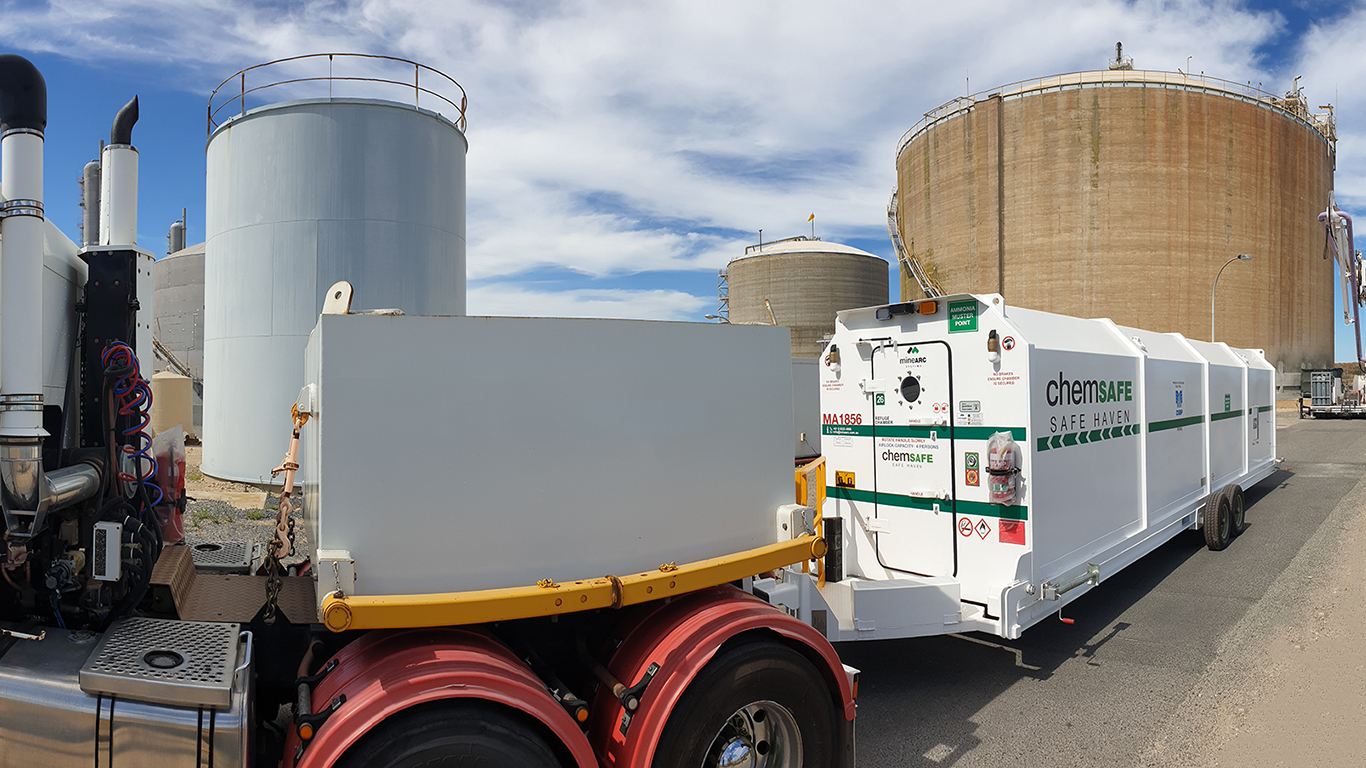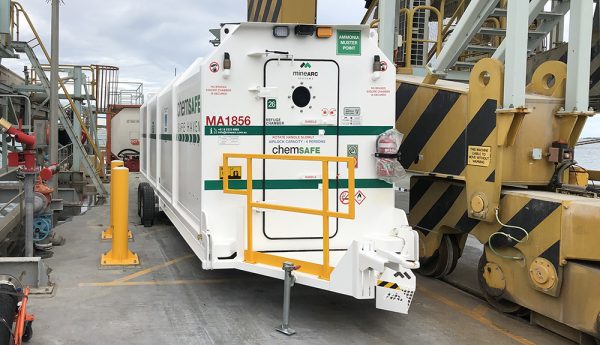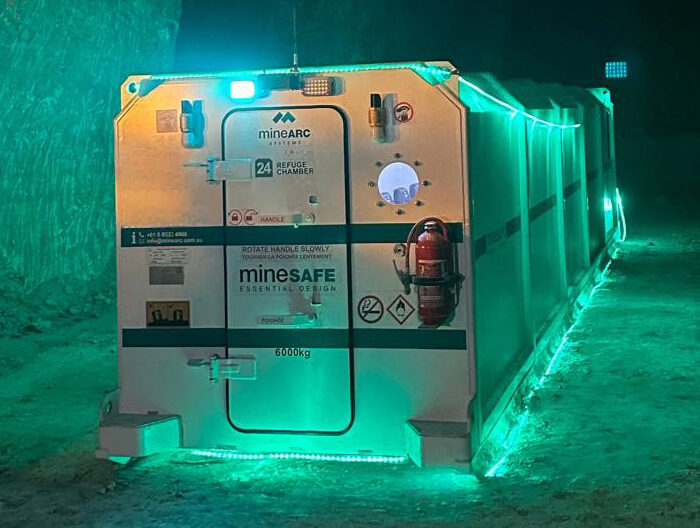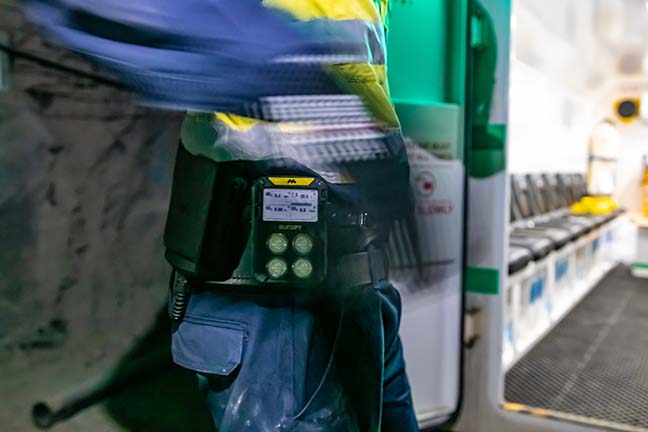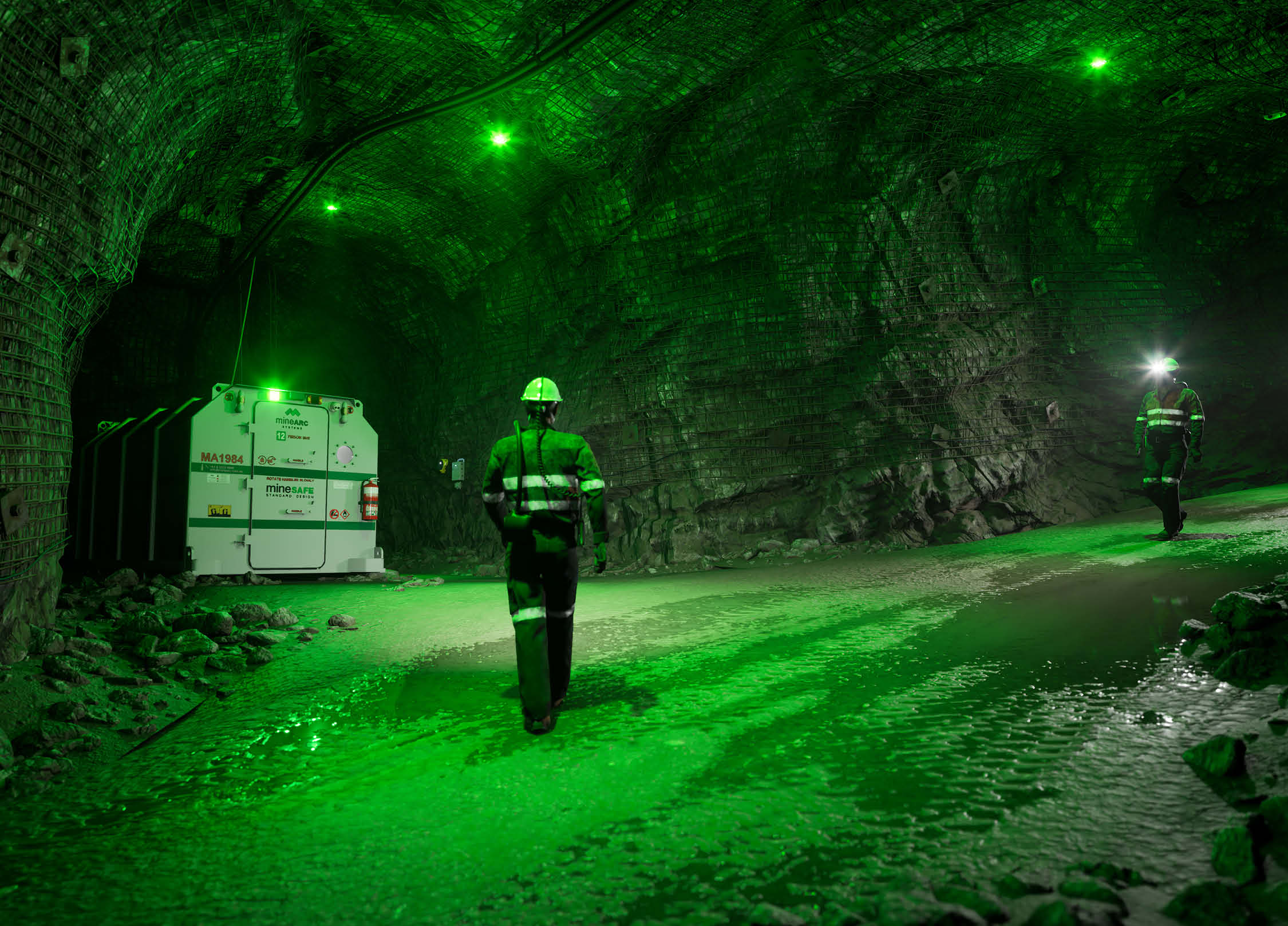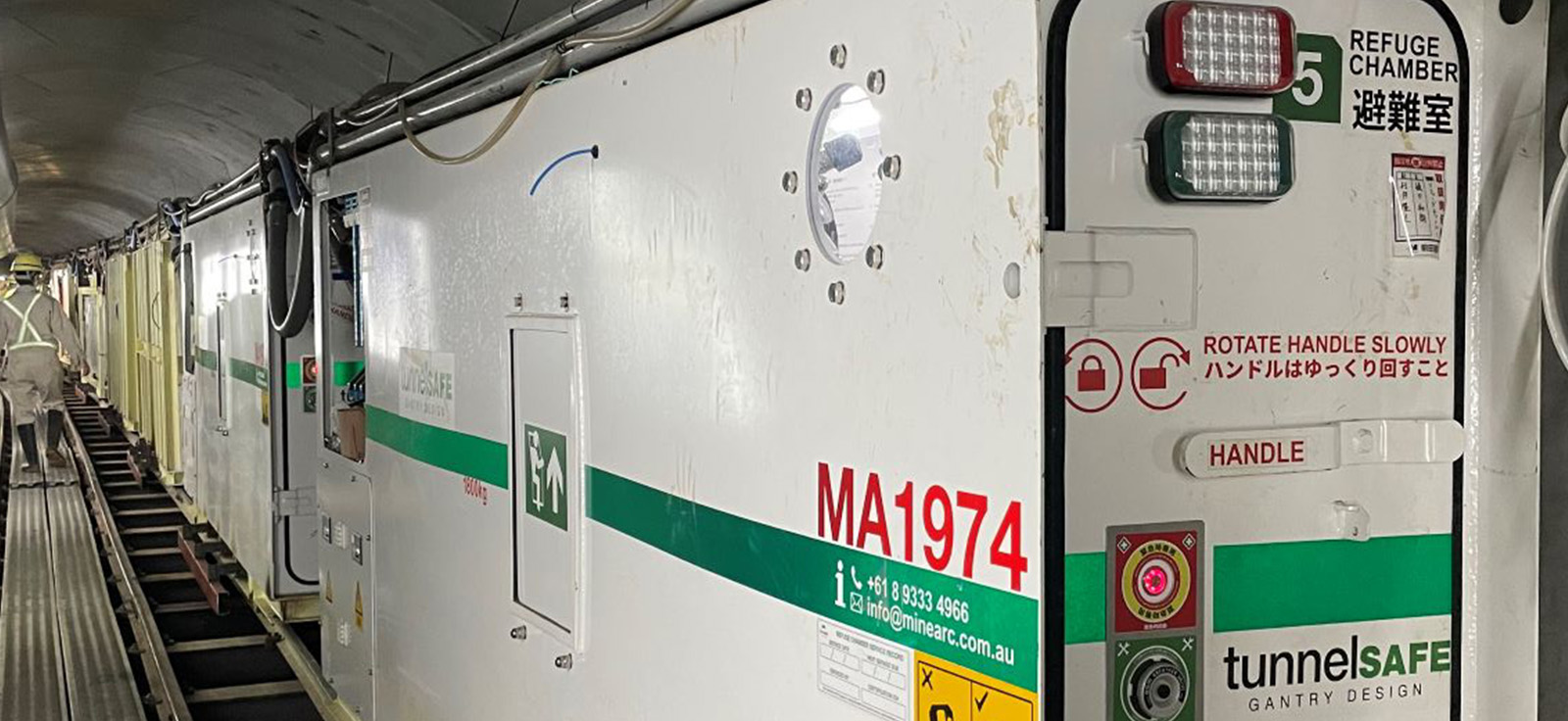A review of CSBP’s safety systems, alongside an external audit provided by MineARC, recognised a potential operational risk during scheduled goods transfers. To maintain a high standard of health and safety for its employees and contractors, CSBP commissioned a portable chemical shelter with high-level ammonia protection systems.
Ports by nature contain multiple hazards; added to this is the continual handover of dangerous cargo. Strict controls for the handling of dangerous goods are in place to prevent hazardous events. However, a chemical shelter provides added protection to on-site staff and contractors if a loss of containment event should occur.
Key Takeaways
- A chemical shelter with a fixed wheel and tow kit allowed on-site personnel to move the refuge onto the port during ammonia imports
- Air curtain rapid entry technology and dedicated digital gas monitor support safe and efficient airlock entry by reducing hazardous gases and identifying airlock purge requirement
CSBP, is part of Wesfarmers Chemicals, Energy & Fertilisers (WesCEF), which forms the Industrials division of Wesfarmers Limited. Its head office and major chemical and fertiliser production complex are in Kwinana, 40 kilometres south of Perth, Western Australia.
CSBP’s products support various industries, including broadacre agriculture, iron ore and coal mining, nickel and gold extraction and construction, across domestic and international markets.
Site Challenges and Solutions
Challenges
- Shared space limits the ability for a fixed structure
- Maritime environment requires unique considerations
- Little warning in the event of a chemical plume
Solutions
- Append a wheel and tow trailer kit allowing the refuge to be moved on and off the pier
- Customised digital gas monitor for the airlock
- Accommodating environmental conditions
Wheel and Tow Kit Allows Increased Safety Measures to Coordinate with Chemical Transfers
Kwinana port is a shared resource with limited space for new permanent structures. Adding manoeuvrability ensured the safety of staff and contractors without impacting the external surroundings. CSBP identified several locations on the wharf for flexibility in refuge positioning according to vessel location and working areas.
The ChemSAFE Safe Haven was manufactured to be transportable by attaching a wheel and tow kit to accommodate space limitations and coordinate goods transfers. The kit allows on-site personnel to transfer the safe haven onto the wharf for the scheduled arrival of Anhydrous Ammonia and return the shelter to its storage location once the shipment is complete.
Included in the design were a supporting handrail, swivel stand to level the platform, and adjustable stairs with AS1657 step tread.
Customised Digital Gas Monitor in the Airlock
Safe entry implies that minimal ammonia or other airborne hazards are prevented from entering and contaminating the internal environment. The ChemSAFE chamber is equipped with an airlock to ensure safe entry. However, as airlocks have limited capacity, they can increase the time it takes to enter the refuge. To prevent unnecessary time disruptions to entry, the airlock contained a customised Compact Aura-FX Digital Gas Monitor.
The dedicated Aura-FX Compact Digital Gas Monitor was engineered only to detect varying levels of ammonia (NH3) within the airlock’s atmosphere. The inclusion of tailored voice commands alerts personnel within the airlock if high-risk levels are reached, prompting occupants to purge the airlock. Conversely, if unsafe levels were not detected, the airlock does not require purging, allowing for faster entry.
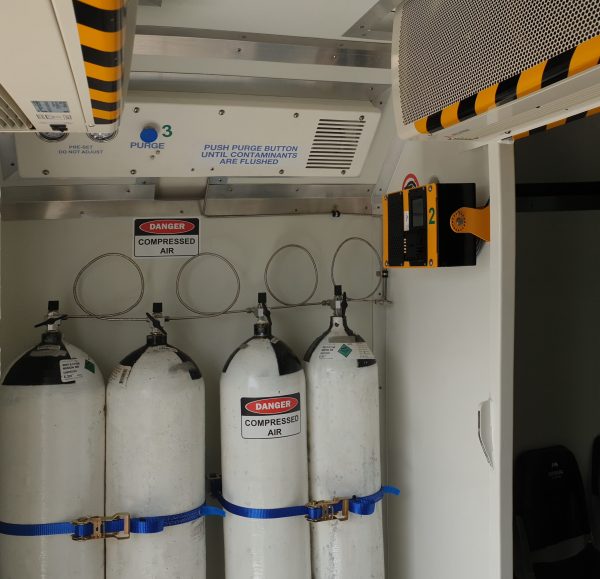
Accommodating Outdoor Maritime Environments
Maritime environments abide by strict safety and communication codes conveyed across domestic and international waters.
The strobes on chemical shelter were amber and blue instead of the traditional red and green to meet maritime guidelines.
Due to the shelter’s location and the Australian environment, extra insulation is inbuilt into its walls, preventing the added accumulation of heat.
Tailored Industry Solution
ChemSAFE Standard Design
- 26-Person Capacity
- Custom Wheel and Tow Kit
- Minimum 2-hour Stand-Alone Duration
Life-Supporting Technology
- Internal Airlock Automated Oxygen Delivery System (AODS)
- Positive Pressure Maintenance System (PPMS)
- Air Curtain Rapid Entry Technology
- Custom Strobe Lighting
- Aura-FX Digital Gas Monitors, with ammonia sensors for internal and external detection
- GuardIAN Refuge Chamber Monitoring with Mobile network connection
- External Insulation
Training & Education
- Training and Operation Materials
- Operator Training


